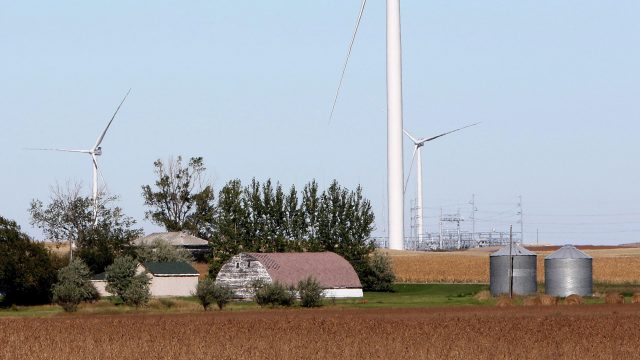Julie Fedorchak: Wind Projects Save Xcel Customers Millions

The North Dakota House of Representatives passed a bill reducing the setback of wind turbines from occupied homes. These turbines are part of the Xcel Energy Courtenay Wind Farm as seen in this file photo. John M. Steiner / The Sun
This guest post was submitted by Public Service Commissioner Julie Fedorchak.
In a recent article, Rob Port claimed that the PSC gave the go-ahead to Xcel Energy “to inflate power bills” here in North Dakota to meet “green energy” goals in other states.
While that’s certainly a provocative lead, it’s false on both accounts.
First the projects don’t inflate North Dakota Xcel customer bills. The projects provide $84 million in savings for our customers. Second, the projects aren’t driven by Minnesota green energy mandates. Our decision was based entirely on the economic benefits for North Dakota customers.
That said, Xcel also testified that they didn’t need these projects to meet their renewable mandate in Minnesota.
The Commission undertook an exhaustive review of these projects. Third party consultants looked at generator and transmission constraints and the impact ramping and cycling have on the operations of baseload resources. Transmission congestion, curtailment and market prices were all incorporated into models to test and determine cost impacts and saving projections.
Through this process it became clear that denying the cost savings of these projects for North Dakota customers would have been irresponsible. By displacing higher cost electricity and providing $84 million in savings to North Dakota customers, this proposal meets and exceeds the Commission’s least-cost planning standard.
Port said if Minnesota creates energy mandates for high cost resources that increase electrical bills, the cost of that policy should go to Minnesotans, not North Dakotans.
I agree. In fact that’s exactly why I said no in 2014 when Xcel asked North Dakota customers to help pay for two high-cost solar projects built exclusively to meet the Minnesota solar mandate.
As a regulator I am constantly pressing experts in the industry to better understand the technological changes impacting energy costs, reliability, markets and the electric grid so I can make informed decisions for the North Dakota citizens I serve.
The cost of renewables is declining, their efficiency is improving and grid operators have learned how to integrate renewables effectively while maintaining reliability. This doesn’t diminish the need or the value of baseload resources like our coal facilities.
It does mean, however, that when projects come our way that capture these innovations, North Dakota customers should benefit from them.




